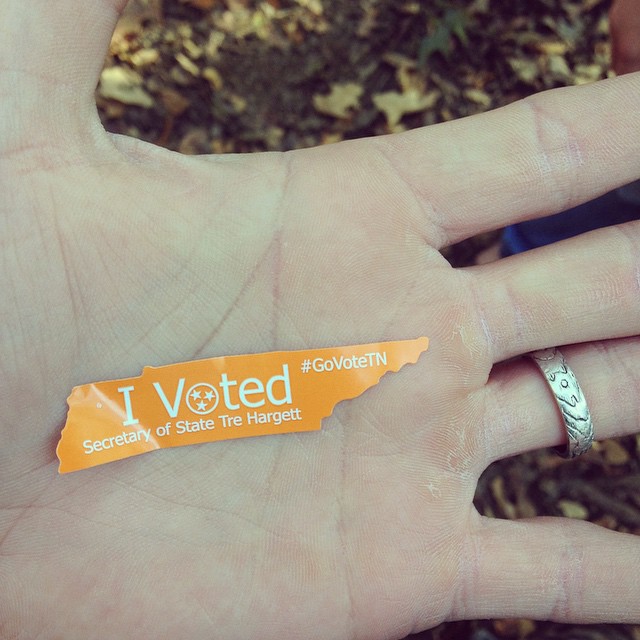Last week voters across the nation took to the polls and cast their votes for change or continuity. Some were clutching at a hope and a vision for the future of their state. Some were going out to vote for whoever they concluded to be the “lesser of the evils.”
No matter what their attitude toward voting, and no matter if their chosen candidate won or lost, these people participated in the democratic process our country so often boasts about. Their voices were heard, their votes were tallied. Was yours?
Historically, young adults between the ages of 18 and 24 are the least likely to vote in any election. The U.S. Census Bureau reports that, in the 2012 presidential election, 38 percent of young adults voted. This is compared to 49.5 percent of 25-44 year olds, 63.4 percent of 45-64 year olds and 69.7 percent of citizens ages 65 and over.
This information proves that our generation, the generation who is going to be most affected by the long-term consequences of these elections, is the least likely to exercise their right to influence the results.
In the weeks leading up to the state elections held on Nov. 4, there was a notable lack of buzz on campus about issues to be voted on or the candidates running for election. This is particularly concerning because Bryan College houses students from all over the country, with voices that could influence several states.
The only issue we even heard mentioned in the caf or during chapel was the issue of Tennessee’s Amendment One, which called for more power to regulate abortion clinics. Even then, not much was said. A representative of the Women’s Care Center in Dayton briefed students on what the amendment was about, and urged us to vote. The college sent out a few mass emails, again urging us to vote. But we heard little from students themselves. Fortunately, Amendment One passed without our help.
Now, the fact that we are not privy to how many students voted does not mean that students did not vote. But, from the number of confused looks we got when we mentioned our friends request absentee ballots, the number of times we overheard someone say they did not even know how to register to vote and historical voting trends, we are concluding that the voices on this campus were not sufficiently represented at the polls.
The bad news is that we cannot expect to be heard by our representatives when we exhibit this kind of apathy. The good news is that there is an easy fix–get educated on the issues and get to the polls!
We cannot afford to be an apathetic generation. We are paving the way for generations to come, and we are responsible for leaving them a better lot than our predecessors have left us. We cannot change the world from a place of comfortable ignorance.
Only when we choose to engage–when we choose to exercise our rights–will our voices count. Only then can we enact change.


